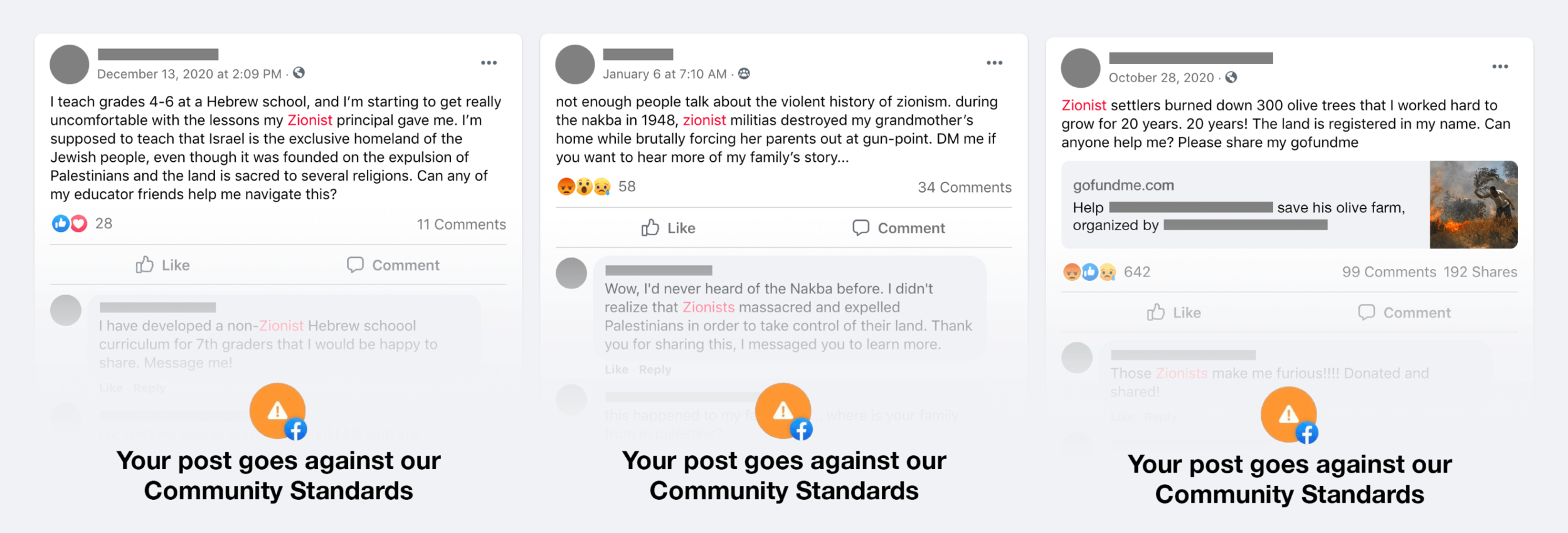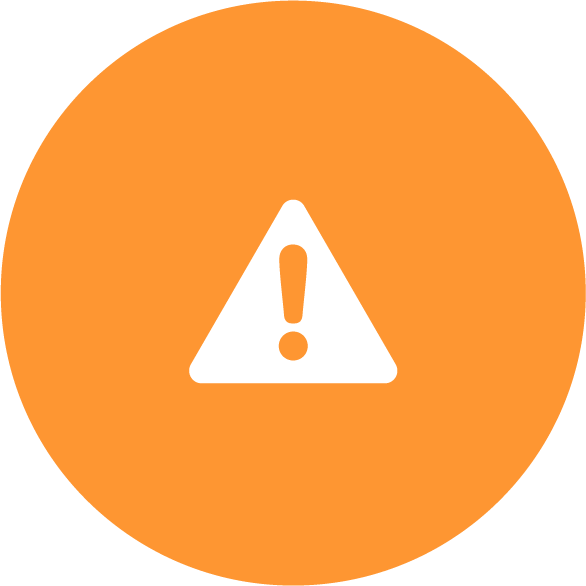frequently asked questions
What’s going on?
We all want to connect. And social media can be a powerful tool to help us get past walls and share our stories, grow our networks, and stand up for one another. At the same time, the need for social media companies to ensure their platforms are safe and accessible has never been greater, and right now they are implementing guardrails so we can all safely connect across space and difference.
But some politicians and governments are trying to turn these necessary guardrails into walls that keep us apart, generating fear and keeping us divided so they can avoid being held accountable for their actions.
What’s happening at Facebook?
Right now, Facebook is reaching out to stakeholders to ask if critical conversations that use the term “Zionist” fall within the rubric of hate speech as per Facebook’s Community Standards. Basically, Facebook is assessing if “Zionist” is being used as a proxy for “Jewish people or Israelis” in attacks on its platform.
This move is part of a concerning pattern of the Israeli government and its supporters pressuring Facebook and other social media platforms to expand their hate speech policies to include speech critical of Israel and Zionism.
Facebook says it will make a decision as soon as the end of February 2021.
Why is this happening?
The Israeli government and its supporters falsely claim that equating “Zionist” with “Jew” or “Jewish” will help fight antisemitism. In reality, they hope that that by mischaracterizing critical use of the term “Zionists” as anti-Jewish, they can avoid accountability for its policies and actions that violate Palestinian human rights.
Attempts to stifle conversations about Zionist political ideology and Zionist policies carried out by state actors — both of which have real implications for Palestinian and Israeli people, as well as Jewish and Palestinian people around the world — are part of an emerging pattern of political censorship by the Israeli government and some of its supporters.
The most prominent example of these efforts to shield the Israeli government from accountability is the current campaign to impose the controversial IHRA working definition of antisemitism on campuses and civil society, and to codify it in government legislation.
What would the result be?
If Facebook does move to restrict use of the word Zionist, this would block important conversations on the world’s largest social media platform, harm Facebook users attempting to connect across space and difference, and deprive Palestinians of a critical venue for expressing their political viewpoints to the world.
Social media is increasingly a space for people to share and document their experiences with state violence and repression, upending previous power imbalances, government censorship and state-controlled media. This has been a gamechanger for global social movements for justice, including the growing movement in support of Palestinian human rights.
Palestinians need to be able to talk about Zionism and Zionists in order to share their family stories and daily lived experience with the world. That language is essential to clearly distinguishing between Judaism and Jewish people, on the one hand, and the State actors responsible for human rights violations against Palestinians, on the other.
What should Facebook do?
Facebook should allow us to hold governments accountable — not shield governments from accountability. It should refuse to cooperate with governments and politicians who are hoping to shut down our conversations and build more walls to keep us apart. That means Facebook should make sure we can discuss, debate, and even disagree about political ideologies like Zionism, about government policies and actions and accountability, and about our lives and families — as part of our commitment to safety for Palestinian people and Jewish people wherever they are in the world.
Would this policy help dismantle antisemitism?
No. It would do nothing to address antisemitism, especially the violent antisemitism of right-wing movements and states — which, as recent events have shown, is the source of the most tangible threats to Jewish lives.
We know that antisemitism is part of the machinery of division and fear politicians and pundits use to keep us feeling isolated and alone so that they can hold onto or expand their power — the same machinery that is used to target people of color, Muslims, Palestinians, and other minority communities. Any policy that falsely pits our interests against each other harms all of us. We know that freedom and safety for any of us relies on freedom and safety for all of us.
Ok, so how do we dismantle antisemitism?
Instead of giving into its fear and isolation, we commit to join together to dismantle that machinery by refusing to be divided against each other based on our religion, race, or nationality. That effort starts with finding commonalities in our stories and debating our visions for the future, even when we disagree. Given that Facebook’s own Community Standards state a commitment to being a space where users can “talk openly about the issues that matter to them, even if some may disagree or find them objectionable,” Facebook should be a place for us to do this crucial work. This means letting us talk about Zionists and Zionism.
What is Zionism, anyways?
Zionism is a political ideology and movement that emerged in the 19th century and led to the founding of the state of Israel on Palestinian land. It has been deeply contested since its conception, including in Jewish communities, where there has always been substantial opposition to Zionism. Criticizing the political ideology of Zionism, and the discriminatory Israeli policies that are based on it, is very different from racism and hate speech against Jews for being Jewish. The former is legitimate speech, protected by the First Amendment; the latter amounts to antisemitism.
The Israeli government is hoping that by censoring speech that includes the word “Zionist,” it will become generally accepted that all Jews are Zionists and that “Zionist” is just another name for Jews. Both assertions are false and are quite dangerous to Jewish communities, as they imply that all Jewish people are responsible for the actions and policies of the Israeli government, including those that harm or discriminate against Palestinians and their basic rights.
Moreover, there are more self-defined Zionists in America today who are not Jewish than ones who are. And many antisemites, especially among white supremacists and evangelical Christian Zionists, support Zionism while engaging in speech and actions that dehumanize, insult and isolate Jewish people.

